Over 300 and counting—that’s how many books Panahon TV employees have read since Executive Producer Donna May Lina launched the book report program in 2016. The rules are simple: read at least a 100-page book a month and write a review about it. Both the book and book report may be written in Tagalog or English, and the best book report gets a cash prize.
The exercise feels like a throwback to the employees’ high school days, but Lina believes that the skills learned from it remain relevant in the workplace. “As we are a content creation group, there’s a need to ensure we have a steady supply of ideas,” she shares. “One of the best ways of sharpening our comprehension and critical skills is through reading.” But Lina admits that the ultimate goal of the book report program is to develop a love for reading among her employees. “If you get to love reading and enjoy it, the possibilities are limitless. It can take you to places you have never imagined, and helps you understand the world better. Access is easier now with the e-books—or you can simply borrow books from friends and neighbors.”
 Books read by Panahon TV employees are documented and filed.
Books read by Panahon TV employees are documented and filed.
Learning from Reading
Because of the requirement, non-reading employees were forced to pick up books—something they didn’t previously perceive as a leisure activity. Eventually, some of them acquired the reading habit, which not only honed work skills but also helped in coping with anxiety especially during the pandemic. It also gave them opportunities for self-improvement, particularly among employees who don’t normally write and converse in English. Though they are given the option to write their book reviews in Filipino, some still choose to write theirs in English to develop skills. Panahon TV’s head writer, who receives the book reviews, takes the time to critique each entry and encourage future submissions.
To gather their thoughts on reading, we chatted with some of the team’s regular readers.
 Jun Bert Fabale
Jun Bert Fabale
Position: Website Administrator and Tricaster Operator
How have you benefited from your reading habit? Reading helps me gain new knowledge and sharpen my grammar. It’s also a good stress reliever because it keeps my focus on the book I’m reading. For a moment, I get to take a break from my personal problems.
 Cris del Rosario
Cris del Rosario
Position: Motion Graphic Artist
How have you benefited from your reading habit? Aside from widening my knowledge, reading has helped improve my writing skills, which I consider one of my greatest weaknesses, along with verbally communicating with others. Now, I’m slowly gaining confidence in these areas.
 Marmick Julian
Marmick Julian
Positions: Cameraman and Audioman
How have you benefited from your reading habit? I used to find myself more likely to finish a book report at the last minute, but lately, I’ve been trying to submit ahead of time. I want to continue improving my reading comprehension skills. This exercise lets me take a break from social media, which sometimes shows violent content that adds to my stress.
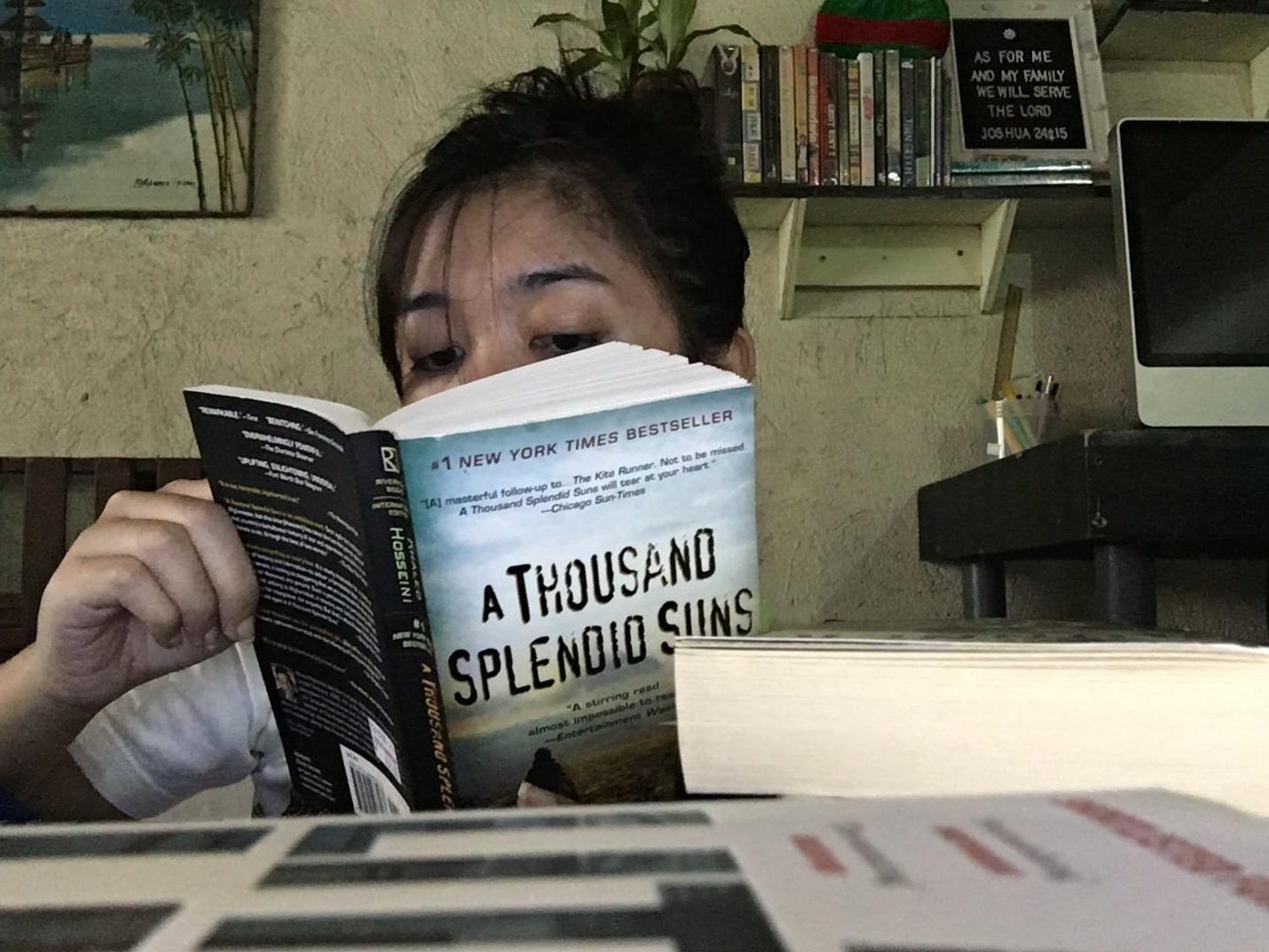 Charie Abarca
Charie Abarca
Position: Social Media Producer
How have you benefited from your reading habit? From the very start, I’ve always associated reading with escape. Besides the fact that reading expands my vocabulary and helps with my writing, I am thrilled that I get to do what I love and what I am required to at the same time. I have no more excuses not to read!
 Justina Yang
Justina Yang
Position: Intern and a Broadcasting Communication student at UP Diliman
How have you benefited from your reading habit? Regular reading helps me expand my vocabulary and helps me learn new things. But more than that, reading lets me experience different worlds that I may never experience in real life. Every time I open a book, I start a new adventure with the characters. Every turn of the page is exciting because I dive deeper into the world that the book offers. This way, reading helps me forget about the current world that I live in. It’s like a temporary escape from reality, which helps me relieve stress.
Friendly Competition
The head writer used to solely determine the book report winner, but now, the previous month’s winner picks the best book review from three anonymous finalists chosen by the head writer. During the program’s weekly meeting, the previous winner presents his or her opinions about the top 3 submissions, and announces the winner. The head writer then reveals who submitted the winning entry. Lina agrees that this is a better scheme since it has “upped the ante for critical thinking” while training employees in public speaking.
Jun, who has twice succeeded in getting the top prize, talks about the exhilaration of winning. “It was a good feeling because the other book reports were also good.” Charie, who has won 3 times, shares how she writes her book reports. “There’s no magic in winning the book report of the month; I just make sure that whatever I’m submitting is close to my heart. For me, a good book scars or changes me, and successfully relays its message.” For Justina, winning was a form of validation. “The fact that my book report was chosen as a finalist, and eventually the winner meant that someone appreciated what I’ve written, and that made me feel happy.”
When asked about how they felt about choosing a winner, Jun says, “I was shocked because I didn’t know how to distinguish a book report especially if it’s written in English. But I chose the winner based on how well the submitter followed the format, and how the report effectively summarized the book.” Justina confessed that she, too, had a hard time picking a winner. “All the book reports given to me were well-written. There were even instances when I doubted my choice because the other reports were equally good.” In the end, she based her final choice on how she felt while reading the report, and the submitter’s writing style. Charie, who judged the book report finalists last month says she likes the idea of giving employees the chance to speak and choose the winner. “We get to see how someone critiques a work of art with depth. I believe that everyone have what it takes to be a winner,” she says.
Cris and Marmick speak highly of the winners. “ I admire them because they were able to clearly communicate their thoughts and feelings about the books they read. Reading their book reports is like reading the books they reviewed.” Marmick agrees. “I think good reports come from being passionate about reading. The winners effectively conveyed their opinions about the books they read.” For Lina, the reward comes when employees are “able to synthesize the put into context and application the books read. With so much ‘noise’ around, curling up with a good book is a good exercise for thinking and reflection.”
 Charie’s multicolored notes in her most recent read, which was 720 pages long.
Charie’s multicolored notes in her most recent read, which was 720 pages long.
Here are the top 8 books read by the interviewees in no particular order:
- Ikigai: The Japanese Secret to a Long and Happy Live by Hector Garcia and Francesc Miralles
- The Tao of Pooh by Benjamin Hoff
- Sombi by Jonas Sunico
- All Grown up by Jami Attenberg
- A Little Life by Hanya Yanagihara
- Kapitan Sino by Bob Ong
- The Butterfly Lion by Michael Morpugo
- Bravo Two Zero by Andy McNab
For four years now, my duties as head writer for Panahon TV includes checking the team’s individual book reports—a monthly requirement Executive Producer Donna Lina cooked up to upskill employees. “As we are a content creation group, there’s a need to ensure we have a steady supply of ideas,” she shares. “One of the best ways of sharpening our comprehension and critical skills is through reading.”
But aside from reading’s popular benefits, such as enriching vocabulary, and improving focus and analytical skills, studies show that it also sharpens memory. A 2013 study by the Rush University Medical Center in Chicago revealed that engaging regularly in mentally-stimulating activities, such as reading, keeps dementia at bay. But another study published in the Social Science & Medicine journal in 2016 revealed an even more astonishing discovery—by observing the reading patterns of almost 4,000 people who were 50 years old and above, book readers were found to live almost two years longer than non-readers.
What accounts for this supposed longevity among bookworms? Perhaps the answer lies in even more studies that show how reading helps manage stress and depression.
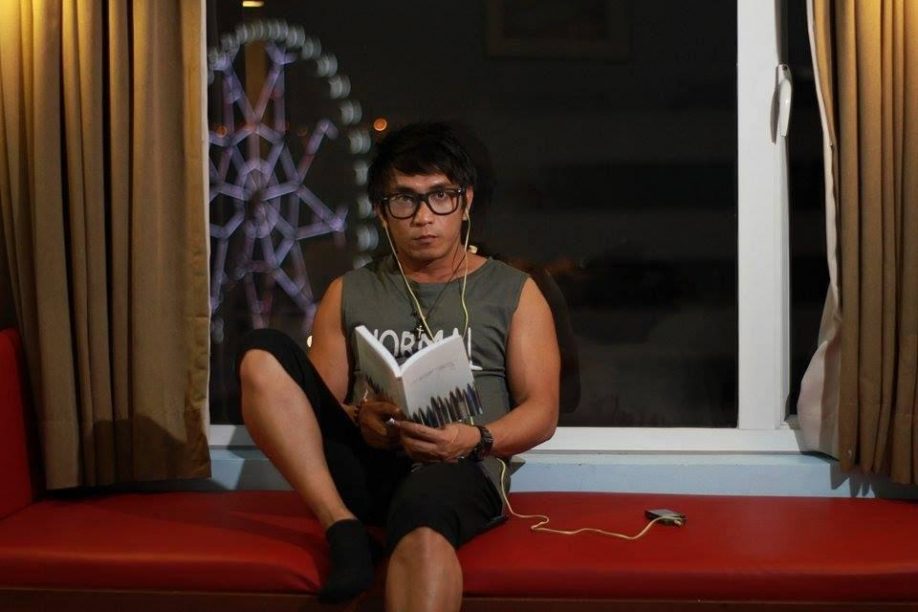 PM Caisip, live producer and video editor
PM Caisip, live producer and video editor
 Hollie Delles, administrative assistant
Hollie Delles, administrative assistant
 Trisha Garin, oncam reporter and segment producer
Trisha Garin, oncam reporter and segment producer
Each month, employees are required to submit a book report of one or two pages on a book they’ve recently read. Books, including graphic novels, have to be at least 100 pages, and can be in Filipino or English. Those who fail to submit are penalized, while I pick the best book report—the author of which receives a cash prize.
But beyond the reward-and-sanction scheme, Lina wants her employees to read because they enjoy it. “If you get to love reading and enjoy it, the possibilities are limitless. It can take you to places you have never imagined, and helps you understand the world better.” She adds, “From a skills standpoint, you can learn without having to spend so much. Access is easier now with the e-books—or you can simply borrow books from friends and neighbors.”
PM Caisip, who’s never missed a submission in four years, shares how he’s always loved reading—but only books in Filipino. “At first, it was a challenge for me to read books written in English, and then write a report about them.” But through practice, PM has gained more confidence. “When I read, it’s like I’m watching a movie, which is one of my favorite things to do. I learn a lot, especially if the book deals with a character or culture I’m not familiar with.”
Hollie Deles, who also regularly submits, shares how reading is a passion that stems from her childhood. “When I was a child, I loved visiting our school library and reading. Books challenge my perspective in life. When I read a story that has an unsatisfactory ending, I imagine my own ending.”
But Trisha Garin’s story is different. She admits that at first, reading was a chore. “I didn’t regularly participate in our monthly book reports because it was hard for me to finish a book, especially when I didn’t like the character or where the story was going.” But her recent win in the exercise made her realize that her problem didn’t lay in reading itself, but in the books she read. “Before, I sent an entry about a fiction book that I read, and I wasn’t happy with my writing. Then my boyfriend introduced me to a non-fiction book entitled “The Miracle Morning”, which encouraged me to keep a gratitude journal. It helped clear my mind, and more importantly, it made me want to read more books that will help me mentally and spiritually. After that, I didn’t have to pressure myself anymore to submit book reports. I now read because it keeps my soul alive. For people who experience anxiety, reading is a big help.”
Reading and loving it
Years of reading the team’s book reports have allowed me to observe how the regular submitters’ written skills have evolved and vastly improved. Their sentences are more masterfully crafted with a wider vocabulary. In choosing a winner, I keep in mind that a good book report displays good grammar. But sometimes, I allow technical skills to take a backseat to passionate writing.
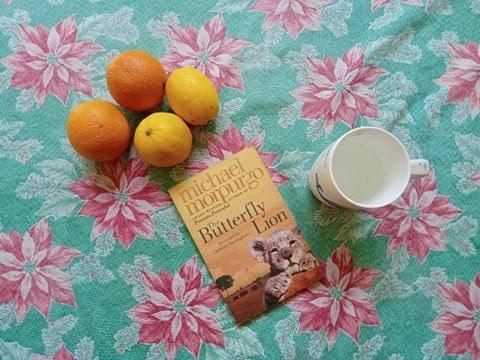 Hollie’s winning book report was on The Butterfly Lion by Michael Morpurgo
Hollie’s winning book report was on The Butterfly Lion by Michael Morpurgo
It is such passion that fuels Hollie to submit month after month. “It’s not about winning the cash prize; reading is a reward in itself. It relaxes me, and teaches me life lessons. When I encounter an unfamiliar word or phrase while reading, I immediately ‘Google’ it.”
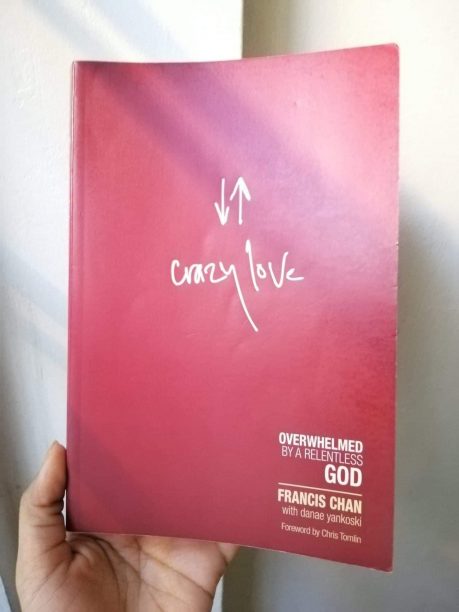 Trisha’s current read
Trisha’s current read
For Trisha, reading helps her to comprehend and condense news articles—a key part of her job as a reporter. “It also helps me to be more fluent in conversation—and most importantly, reading lifts my mood.”
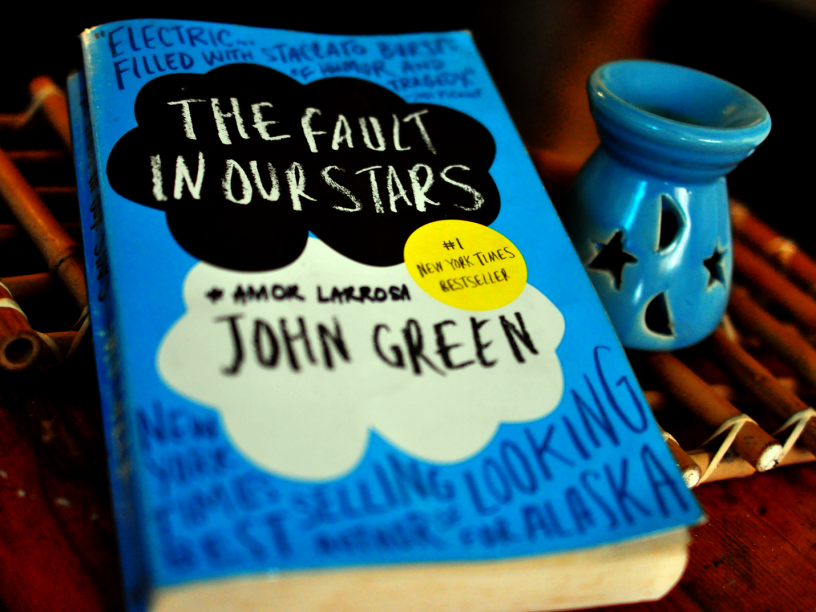
One of PM’s winning book reports was on The Fault in Our Stars by John Green
PM sees reading as an essential part of his life. “When you’ve done it for a long time, it’s in your system. Reading for me is like my daily intake of vitamin C.”
Practical application
Now that we’re in the middle of a pandemic, Lina believes the reading is more relevant than ever. “There’s so much literature out there. If you don’t have reading skills, you miss out on finding solutions to problems.”
PM agrees. “Because of reading, I’ve become more aware of situations around me. It improves my focus, creativity and research skills.” Hollie shares that reading has improved her life perspective. This is also what Trisha has learned from her favorite non-fiction books. “We need to be able to accept life as it is, and to live it to the fullest.
It has often been said that when a chapter closes, a new one begins. Whatever chapter they’re in, Lina hopes that all her team members learn the long-term value of reading. “I hope they appreciate the amount of effort that goes into encouraging people to read and eventually savoring it.” She ends, “I’ve always believed that you need to read to save your life.”
Donna Lina’s Top Ten Books
- The old Archie Comics
- The Checklist Manifesto by Atul Gawande
- The Last Lecture by Randy Pausch
- Anne of Green Gables by L.M. Montgomery
- Noli Me Tangere by Jose Rizal
- El Filibusterismo by Jose Rizal
- Quiet: The Power of Introverts in a World that Won’t Stop Talking by Susan Cain
- The Bible
- The Little Prince by Antoine de Saint-Exupery
- The Tipping Point by Malcolm Gladwell
